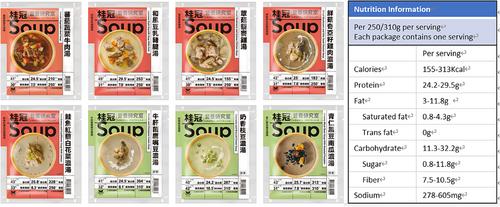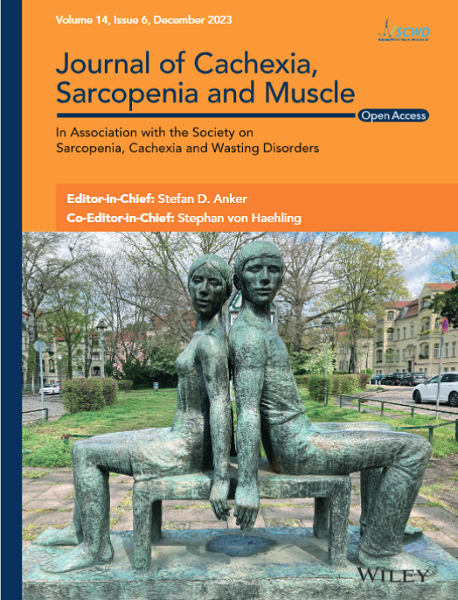Prior research has highlighted the synergistic impact of protein supplementation on muscle function post-exercise in adults; however, evidence supporting the combined effects were less robust and inconsistent on those with protein insufficiency. This investigation aims to explore efficacy of protein-enriched soup coupled with exercise on muscle health and metabolism in middle-aged and older adults with suboptimal protein intake.
An open-label, 12-week, randomized controlled trial involving participants with insufficient protein intake (<1.0 g/kg/day) was done. The intervention group consumed protein-enriched soup (24–30 g protein daily) and 1-h weekly exercise, while controls received health education. Assessments included laboratory tests, functional assessments, and body composition.
In this trial, 97 out of 100 randomized participants (mean age: 64.65 ± 4.84 years, 81.8% female) completed the study (47 in intervention group and 50 in control group). Compared results of baselines, at 1 and 3 months of intervention, significant improvements in waist circumference (83.48 ± 10.22 vs. 82.5 ± 9.88 vs. 82.37 ± 9.42 cm, P for trend = 0.046), 6-min walking distance (525.65 ± 58.46 vs. 534.47 ± 51.87 vs. 552.02 ± 57.66 m, P for trend = 0.001), five-time sit-to-stand time (7.63 ± 1.63 vs. 6.81 ± 1.8 vs. 6.4 ± 1.42 s, P for trend <0.001), grip strength (26.74 ± 6.54 vs. 27.53 ± 6.99 vs. 28.52 ± 7.09 kg, P for trend <0.001), and MNA score (26.8 ± 2.14 vs. 27.73 ± 1.74 vs. 27.55 ± 1.72, P for trend <0.001) were discerned within the intervention group. The intervention demonstrated a significant reduction in serum triglyceride (105.32 ± 49.84 vs. 101.36 ± 42.58 vs. 93.43 ± 41.49 mg/dL, P for trend = 0.023), increased HDL-C (60.04 ± 16.21 vs. 60 ± 17.37 vs. 62.55 ± 18.27 mg/dL, P for trend = 0.02), and DHEA-S levels (97.11 ± 54.39 vs. 103.39 ± 56.75 vs. 106.83 ± 60.56 μg/dL, P for trend = 0.002). Serum myostatin did not differ in both groups, but serum leptin levels significantly increased (9118.88 ± 5811.68 vs. 11508.97 ± 7151.08 vs. 11220.80 ± 7190.71 pg/mL, P for trend = 0.016) in controls. The intervention group showed greater improvements in 6 min walking distance (β = 0.71, 95% CI: 6.88 to 40.79, P = 0.006), five-time sit-to-stand test (β = −0.87, 95% CI: −1.59 to −0.15, P = 0.017), MNA score (β = 0.96, 95% CI: 0.20 to 1.71, P = 0.013), serum triglycerides (β = −15.01, 95% CI: −27.83 to −2.20, P = 0.022), LDL-C (β = −9.23, 95% CI: −16.98 to −1.47, P = 0.020), and DHEA-S levels (β = 9.98, 95% CI: 0.45 to 19.51, P = 0.04) than controls.
Protein-enriched soup with weekly exercise over 12 weeks significantly improved physical performance, lipid profile, and DHEA-S levels among middle-aged and older adults with inadequate protein intake, while studies assessing long-term benefits of the intervention are needed.



